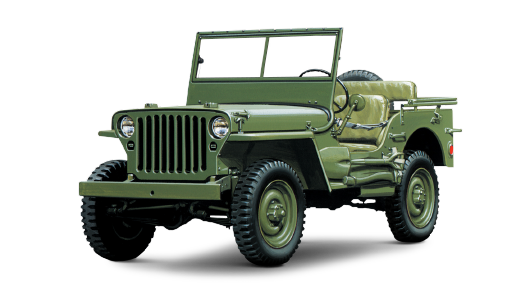Supporting the War Effort
 World War Two saw American businesses of all types working hard to sustain the country’s war effort, and we were no different. The Allied cause was boosted by the entrance of the U.S. into the conflict following the attack on Pearl Harbor in December 1941, and this plunged America’s automotive factories into war production.
World War Two saw American businesses of all types working hard to sustain the country’s war effort, and we were no different. The Allied cause was boosted by the entrance of the U.S. into the conflict following the attack on Pearl Harbor in December 1941, and this plunged America’s automotive factories into war production.
Detroit was the heart, soul and nerve centre of the American industrial war effort. The city’s automotive industry in particular was quick to mobilize, ceasing the production of civilian vehicles and instead working on weapons and vehicles of war. In fact, Detroit businesses produced $30 billion in military hardware by 1945, which was a fifth of all World War Two output in the U.S. This didn’t just involve large firms with big factories like us, either; even small tool-and-die shops were involved in turning out jeeps, tanks, troop transport carriers, bombers, ammunition, electronics, and even helmets.
We certainly played our part in the war effort. 367 of our 3,000 employees went into the service, and our entire manufacturing operation had been converted to war production by 1942. Our tubing products were used in more than 5,000 war applications, including oil and gas lines, brake lines and brake lubrication lines for tens of thousands of Allied vehicles. This, however, was only the start. During the war, we grew. Much of the structure of our Warren and Van Dyke plants took root in the war years, with more equipment, more conveyors, and more employees. Even production was flying at a mile a minute.
The war years were busy, very busy. The growth we experienced was a clear demonstration of our success throughout the period, but it was not our greatest success during these times. The hundreds of brave men that fought overseas were not forgotten and treated simply as employees. Instead, they were given reassurances that their jobs were waiting for them upon their return, and they were regularly kept abreast of the latest company news. On top of this, they were greeted personally by the company’s president, Wendell Anderson, and given a $50 recognition check.
Despite the first half of the ‘40s being a tumultuous period for the entire world, we not only survived, but we thrived.